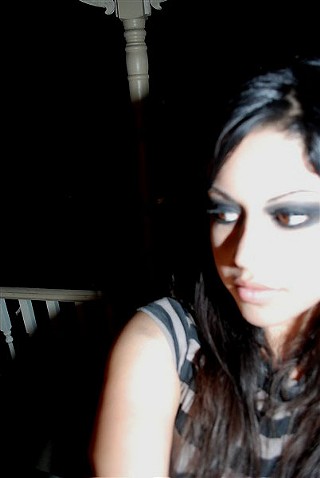The U.S. Drug Enforcement Administration has banned five "fake pot" chemicals, usually sold as incense, that people are using to get high.
The DEA announced on Nov. 24 that the emergency ban would take effect within 30 days of that announcement. The ban will be in effect for at least a year while the federal government determines whether the chemicals should be "permanently controlled."
Meanwhile, owners of shops that carry the products are rushing to move them at slashed prices, and makers are finding loopholes in the DEA's verbiage.
"Spice" and similar products often come in the form of undefined plant material that has been sprayed with a manmade chemical similar to THC, the psychoactive substance found in marijuana.
One of the chemicals, JWH-018, was originally created by Dr. John W. Huffman, of Clemson University, for pharmaceutical research.
These products are being sold in smoke shops nationwide in the form of flavored herbal incense, sold by the gram in small, colorful packets that are often marked with little or no content information—other than the phrase "not for human consumption."
"These bags of so-called incense are being stealth-marketed to young adults, especially the college-aged, for a legal, marijuana-like high," said Dr. Matt Heinz, a physician at the Tucson Medical Center and a Democratic member of the Legislature. "You don't know what you're getting. Maybe that's what's causing some of these adverse effects."
The adverse effects Heinz mentions include seizures, the loss of motor skills, vomiting and feelings of panic. Heinz said that the effects are usually temporary and have not been determined as the cause of any deaths.
On Nov. 19, some members of Legislature, including Heinz, began working on a bill that would add "any and all synthetic THC to a list of controlled and banned substances in Arizona."
Shortly after that meeting came the DEA's announcement, which was no doubt due in part to moves by some states to ban the chemicals.
"It's actually not THC; it's like THC on steroids, six times the concentration per gram (compared to) good-old-fashioned, naturally occurring marijuana," Heinz said about the soon-to-be-banned chemicals. "It's, like, super-charged. Actually, I'm quite supportive of medical marijuana. I'm not a crazy ban-everything sort of a person, but I do not like this thing. It's very unpredictable stuff, and people can get hurt."
Managers at both Moon Smoke Shop and JJ's Smoke Shop declined to speak on the record with the Tucson Weekly about the chemicals. However, employees at Moon, JJ's, Head East Smoke Shop and Glass Bottom Smoke Emporium all said their stores carry or carried the products, which were being sold as incense. Some employees added that they would refuse to sell the products if potential buyers said they intended to smoke them.
However, two patrons of Moon—who would only identify themselves as Chris and Michael, and who both said they were 18—offered their unabashed support for "Spice" and similar products.
"It makes (some) people sick; they'll throw up when they smoke it," Chris said. "Me, personally, I think it's nice to be able to smoke a bowl of 'Spice' in public, and to not have to worry about people smelling weed."
Both Chris and Michael also said that although smoking "Spice" is a new trend, using substances in high school is far from new.
"We live in a wasteland town in the middle of the desert. What have people been doing since the beginning of time, when they started to settle in the West? They were fuckin' outlaws, getting drunk, robbing banks," said Chris. "I'm telling you right now, if you don't smoke weed or don't drink alcohol, it's hard to have friends here. There are good kids who don't do that, but there are so (few) compared to everyone else who's using that it's hard to find those people."
Michael and Chris said that they have not experienced any adverse effects from smoking "Spice." On the night we spoke to them, they'd each bought five grams of "Mystic Fire Extreme."
The five chemicals that will be banned by the DEA are JWH-018, JWH-073, JWH-200, CP-47,497 and cannabicyclohexanol.
Meanwhile, some manufacturers are merely changing the compounds slightly, allowing them to rename the chemicals and making them technically legal.
The Weekly e-mailed one distributor who placed a post on the Facebook page of a local head shop. We inquired about the cost and legality of his product, and whether or not it could be smoked.
The response: "... lol, yes you can smoke it. And you can order however much you want. I can supply it, and yeah—it's legal. The DEA just banned five chemicals that people use in herbal incense, but we only use JWH-250 in ours, and that chemical is still legal."
Some distributors are calling these incense blends "50 state legal blends"—in other words, the products are still legal in all 50 states.
Despite these challenges, Heinz said he'll continue to address the issue.
"The desire to find something that is a marijuana substitute (creates) a significant market for something legal," said Heinz. "As long as I'm in the Legislature, and as long as most of the legislators I've talked to are up there (in Phoenix), we're going to follow this stuff as closely as possible and continue to make sure that it is not allowable. It's that dangerous."










